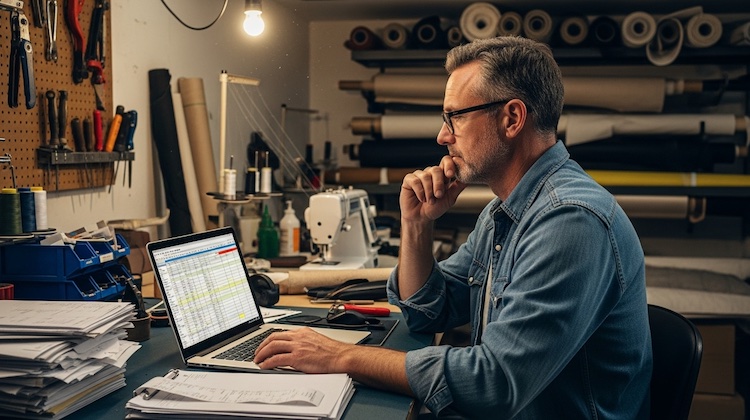
Running an auto upholstery shop comes with constant ups and downs. Materials spike in price, customers pay late, the economy wobbles, and sometimes the phone just stops ringing for no clear reason.
That’s why every shop — big or small — needs a 90-day cash flow buffer, Joseph Camberato writes in a recent article for Entrepreneur.
A 90-day buffer is simply money set aside to cover three full months of your business expenses, even if you don’t bring in a single dollar. That includes rent, payroll, insurance, utilities, materials — everything it takes to keep your shop open and your team paid.
It may sound like a lot, and for many small businesses it is, but the truth is that unexpected disruptions are more common than we’d like to admit. A sudden price increase, a delayed shipment, or a customer who takes an extra few weeks to pay can throw your whole month off. If any of those scenarios make you uneasy, that’s exactly the sort of vulnerability this buffer is meant to protect against.
What I appreciate about the article is that it frames financial planning not as fear-driven, but as confidence-building. The last five years have shown us how unpredictable the world can be — from pandemic shutdowns to supply chain issues, from interest rate hikes to new tariffs. Many small businesses that looked profitable on paper ended up failing simply because they didn’t have cash on hand when they needed it most. A financial cushion, even a modest one at first, removes that panic. It gives you room to think clearly instead of reacting out of desperation.
And importantly, a 90-day buffer isn’t just about surviving tough times — it’s also about positioning yourself to grow. When you know your essential expenses are covered, you can make decisions from a place of strength. If sales dip, you can keep operations steady without resorting to drastic cuts. If a good opportunity comes along, whether it’s discounted materials or a chance to purchase new equipment, you can move quickly. Vendors and employees notice when a business is consistently stable and pays on time. That kind of reliability strengthens your reputation and opens doors that might otherwise stay closed.
The article also reminds us of the risk of operating with too little cash on hand. During the early months of COVID-19, thousands of small businesses closed within weeks. Many had only 15 to 30 days of cash reserves — far less than what was needed to weather even a temporary shutdown. It was a tough lesson, but a powerful one: without a cushion, even a short disruption can threaten a business’s survival.
Building a 90-day buffer doesn’t happen overnight, and that’s okay. As your shop grows and your expenses change, your buffer should grow too. Checking in every few months to see where your expenses stand makes a big difference. Even setting aside a small percentage of profits each month will add up over time.
If you want the full breakdown and even more practical advice, take a moment to read the original article. It’s well worth your time — and it might just be the push your auto upholstery shop needs to build a stronger financial foundation.
Recent Comments